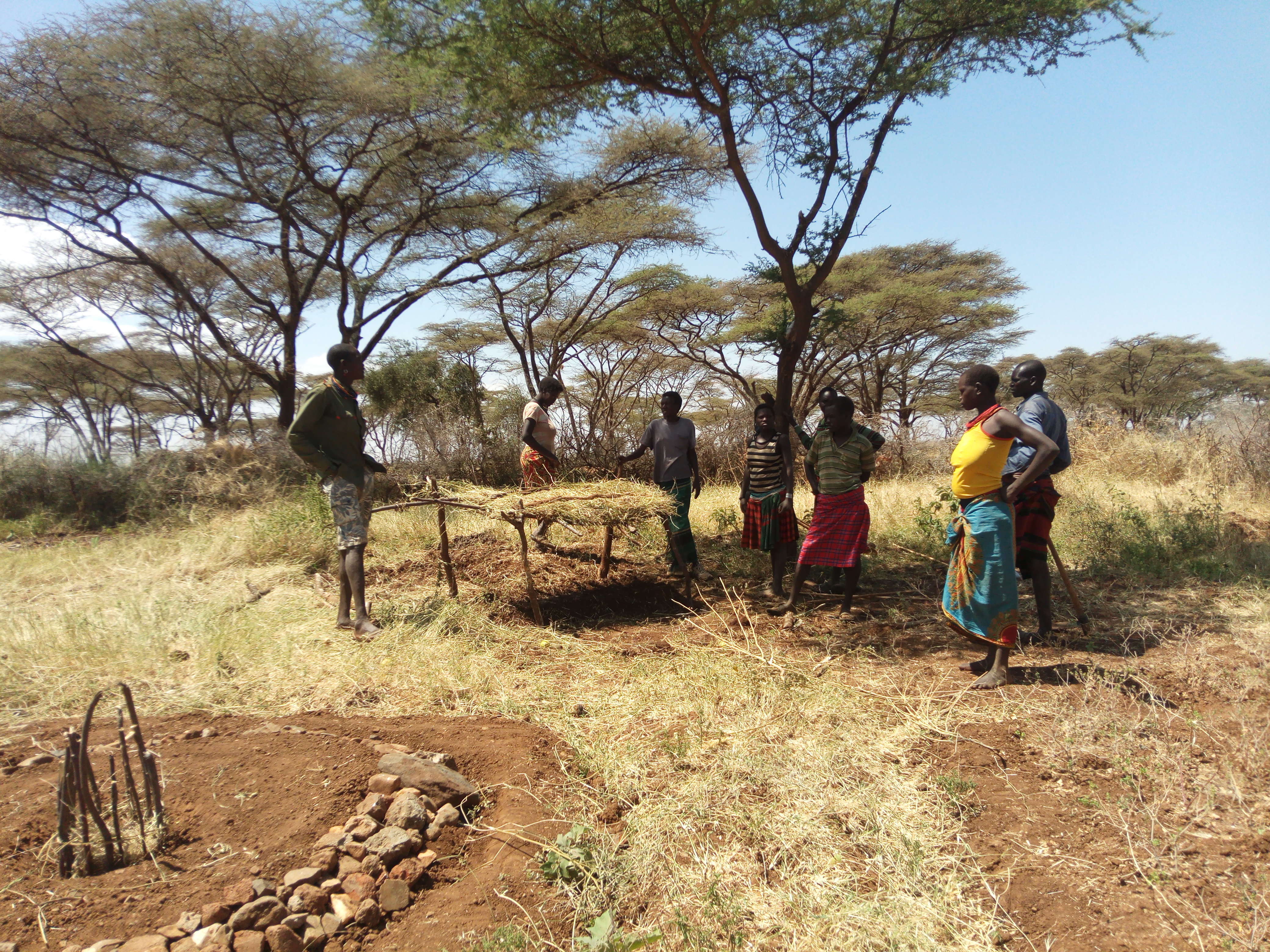
Improving Food Security & Diversification of Livelihood Opportunities for Communities in Karamoja region
Implementation of environmental management activities in the Karamoja region
In light of the twin problems of climate change and environmental degradation with an effort to increase the adaptive capacity of the vulnerable communities to mitigate droughts/floods, FAO - Food and Agriculture Organization of the United Nations in collaboration with JEEP - Joint Energy and Environment Projects are supporting communities in Karamoja to build resilience through implementation of environmental management activities in the region. In January 14th – 23rd 2013, JEEP met programme coordinators, facilitators and mobilizers from the 4 districts of Napak, Nakapiripirit, Moroto and Amudat.
Karamoja region which inhabits over a million people is characterized into three livelihood zones which include; pastoral, agro – pastoral and agricultural linked to livestock dependency and levels of aridity. Karamoja is a semi arid region characterized by long dry spells, poor rainfall distribution, low levels of agricultural production, food insecurity, malnutrition, insecurity, environmental degradation and flash floods.
Karamoja lags behind in all socio economic indicators with poor infrastructures, basic social service delivery and vulnerability to droughts. The situation is intensified by high levels of environmental degradation to meet insufficient fuel wood, fencing materials surrounding traditional Karamojong houses, locally referred to as ‘manyatas’ and income needs of the people. The biomass level has been depleted in most of the districts exposing bare land with scanty vegetation-shrubs, making it prone to soil erosion and weathering.
The launch of ‘strengthening Adaptive Capacity of Agro - Pastoral communities and the Local Government to reduce the Impacts of Climate Risk on Livelihoods in Karamoja’
EEP staff visited 19 sub-counties where 264 Agro – Pastoral Field School groups received Energy Saving Stove training and these sub – counties include Amudat, Karita, Nadunget, Rupa, Tapac, Kakomongole, Lolachat, Loregae, Moruita, Nabilatuk, Town Council, Loroo, Katikekile, Iriiri, Lokopo, Lopeei, Matany, Ngoleriet and Lorengecora.
Fourteen staff from Joint Energy and Environment Projects participated using group sessions, focus group discussions, lectures, presentations and brainstorming
UPDATE AUGUST 2014
FAO Uganda & JEEP collaborative project in Karamoja
Since the beginning of the year 2014, FAO Uganda has been collaborating with Joint Energy and Environment Projects to ensure that tree nurseries are established, while strengthening the existing tree nursery, energy saving stoves are built and fruit tree gardens are planted in Abim, Moroto, Napark, Nakapiripiriti, Kotido, Kaabong, Amudat through facilitators from the Agro Pastoral Famer Field Schools Abim, Moroto , Napark, Nakapiripiriti, Kotido ,Amudat ( APFS) in the above districts.
As the collaborative project between FAO Uganda and JEEP wind up in August, 4 tree nurseries were established in Karamoja region; 2 in Kotido, 1 in Abim and Moroto to be managed by 148 selected Agro Pastoral Farmer Field School (APFS) representatives comprising of 70 females and 78 males.
A total of 4100 residents comprising of 2465 females and 1635 males were trained in constructing energy saving stoves and 7454 stoves were constructed during this period.
JEEP conducted a follow up to assess if the farmers were benefitting from the knowledge and skills they had gained. The team followed up on the 4 manyatas which were fenced by live fences of tree species and Okwapon Primary School in Nakapitipiriti. Basing on the follow up, residents started using energy saving stoves and by the end of August, it was clear that they were saving ½ of what they used to spend using the 3 stone open fire stove.